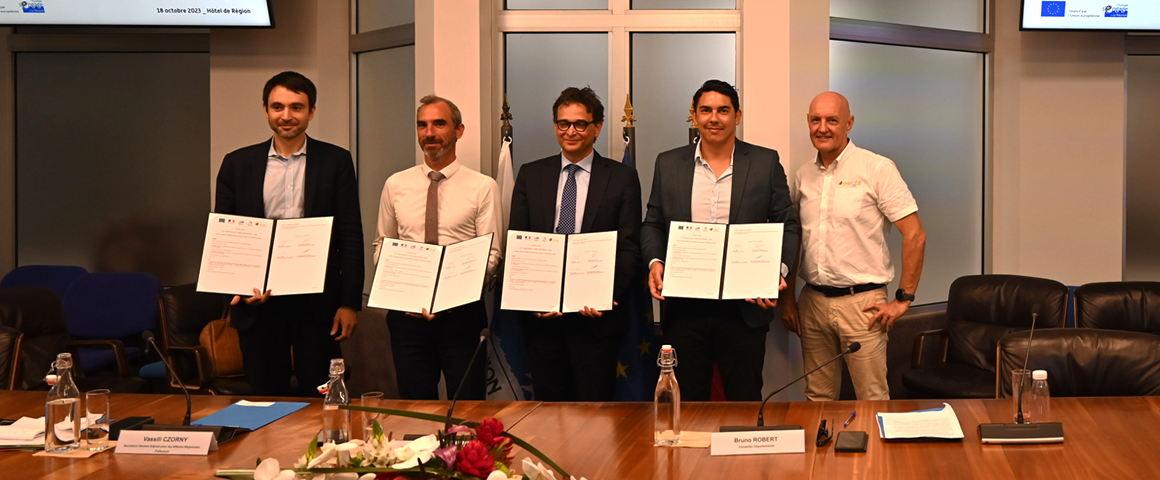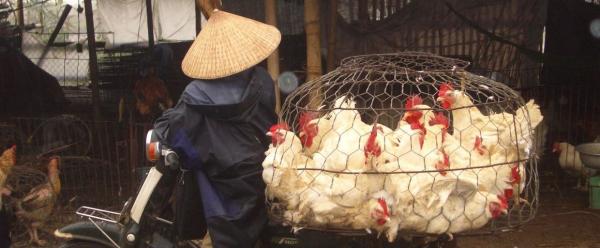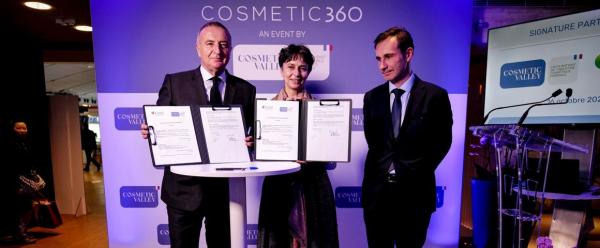Institutional news 21 January 2026
- Home
- Press area
- Press releases
- Renewal of the framework agreement between CIRAD, the French State and Réunion
The framework agreement between CIRAD, the French State, the Réunion Regional Council and the Réunion Departmental Council has been renewed

Left to right: Anthony Farisano, Director General in charge of Resources and Organization, CIRAD; Vassili Czorny, Deputy Secretary General for Regional Affairs at the Préfecture of Réunion; Jean-Pierre Chabriat, Regional Councillor in charge of Higher Education, Research and the Energy Transition, Réunion Regional Council; Bruno Robert, Vice-Chair of the Commission for Works and Infrastructures, Réunion Departmental Council; Eric Jeuffrault, CIRAD Regional Director for Réunion-Mayotte. © J-C. Dagallier, CIRAD
Programming in line with development strategy for the territory
"This new agreement concerns the priority agricultural research operations to be conducted from 2023 to 2027. It follows on from the 2015-2022 quadripartite framework agreement, but includes a proposed change to the way operations are organized, based on planning more agricultural research in partnership, headed by CIRAD", says CIRAD Regional Director for Réunion Éric Jeuffrault. "The agreement fits into the development strategies led primarily by our donors, local institutions and partners, aimed at making practical progress, side by side, with a measurable impact on the territory and its international image, with jobs and knowledge promotion also at the heart of operations", he adds.
The agreement aims to boost skills networks on a local, regional and international level, and reflects the signatories' determination to:
- Satisfy local and regional communities' expectations and demands to ensure sustainable development and food sovereignty in Réunion, within the Indian Ocean region as a whole.
- Satisfy the urgent need for an economy that guarantees the island's health, food and energy security.
It is intended to structure partnerships between the State, the Réunion Regional Council, the Réunion Departmental Council and CIRAD, to tackle shared priorities. It should make a practical contribution to action research/innovation focused on transferring the results acquired and ensuring that they are taken on board by the target beneficiaries in order to leverage policy and specific public funding. To this end, it sets out the strategic lines of CIRAD's intervention on the island, how research and innovation activities will be organized and structured over the period 2023/2027, and how the work planned in the agreement will be monitored and implemented.
CIRAD's participation in the regional ecosystem
CIRAD's new programme will contribute to the development of a research and experimentation network on a local level (for instance with agricultural innovation and transfer networks, or RITAs), and also on a regional and international scale through its regional agricultural research for development (AR4D) platform, PRéRAD-OI.
This greater structuring will strengthen the link with local and regional players, to pinpoint and address the challenges facing territories - with the University of Réunion, IRD, existing skills centres (technical institutes such as Ercane, Parc de La Réunion, CBNM, Armeflhor, the Qualitropic competitiveness cluster, innovation hubs - Technopole, clusters, incubators, other major technology platforms in the territory such as the Plant Protection Platform and the QUALISUD agrifood technology hall on the Saint-Pierre campus, Cyroi and KUB on the Technor site) - and also to work with other research organizations in Réunion and the Indian Ocean.
It will also serve to co-construct, foster alliances and conduct coordinated, collective research/innovation, experimentation, demonstration, transfer and training operations in response to needs expressed locally by professionals or other beneficiaries for whom Research-Development-Innovation provides leverage. Its implementation will make use of existing networks, supplemented if necessary by new operational groups. For instance, CIRAD will be required to participate in various bodies such as the regional animal and plant health policy orientation council CROPSAV, the regional innovation committee, the committee for transformation of agriculture in Réunion, the three RITAs (sugarcane, livestock production and horticulture), the joint committee for sugarcane and sugar, and the Qualitropic competitiveness cluster.
Links with local and regional players will be fostered by means of technology platforms that receive partners and schoolchildren and encourage operational partnerships, such as the Plant Protection Platform in Saint-Pierre (see above), the biomass analysis laboratory and SOERE-PRO in Saint-Denis or the future QUALISUD agrifood technology hall on the Saint-Pierre campus.
Three thematic platforms to structure CIRAD's activities in Réunion
For the duration of the new agreement, CIRAD's research and other activities in Réunion will be headed by three common programming platforms (Dispositifs de Programmation en Partenariat).
The Health and Biodiversity platform practises a One Health approach, encompassing human, animal, plant and environmental health, along with biodiversity protection and preservation. It aims to boost knowledge of animal and plant health, monitor emerging pests and diseases, develop biocontrol and agroecological crop protection, and preserve and restore habitats and landscapes by fostering knowledge and promoting biodiversity.
The CAPTerre platform aims to assess and design agricultural production systems by fostering sustainable compromises. It is distinguished by its multidisciplinary approaches and analyses on different scales, notably including studies of agroecological processes and resource management in island environments. It focuses on major issues such as the circular economy, agroecological management of soils, and farming system resilience on various scales, to build greater resilience and ensure that territorial players take such issues on board.
The SADUR platform focuses on applied research, experiments and collaborations aimed at promoting a healthy, sustainable food system in Réunion. Its main objective is to speed up the agroecological transition, to foster local, healthy, universally accessible food supplies. Its research work will contribute to the installation of production, storage, processing and marketing systems, notably for the island's main fruit and marketing gardening value chains (banana, mango, pineapple, cucurbits, Solanaceae), and high added-value products such as vanilla and cocoa and traditional crops such as lontan vegetables and tubers.
Ongoing regional cooperation to boost the image of Réunion
For more than 50 years, CIRAD in Réunion has been working with Indian Ocean Commission (IOC) member countries, in East and southern Africa and in the Indian Ocean countries. Thanks to its excellent contacts resulting from its in-depth knowledge of those countries and its associated agricultural research and partnership skills, CIRAD has built decisive regional cooperation networks centring on four key issues facing the farming systems of today and tomorrow:
- Building long-term solutions for livestock production systems in the light of climate change,
- Managing the health risks facing plants and animals by means of a One Health approach,
- Preserving biodiversity, conserving plant genetic resources and making them available to professionals,
- And lastly, working to improve food product quality and promote those foods to local people.
These networks, which are leading clusters of complementary projects, including Interreg regional cooperation projects, are supported by PRéRAD-OI, a "collective intelligence tool for sustainable agricultural development" that contributes actively to Réunion's image and influence, by means of a win-win, balanced relationship with neighbouring countries.
Find out more about regional cooperation activities on the PRéRAD-OI website: https://www.prerad-oi.org/































